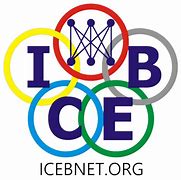Abstract
In the rapidly evolving world of education, the intersection of technology and pedagogy presents unprecedented opportunities for enhancing learning and teaching. This conference paper explores the symbiotic relationship between e-learning, e-business education management, and information technology education management in the context of English language education. Conducted within the English language schools of Kaysersberg Education Group in Taiwan, this research investigates the transformative potential of merging these dimensions to enrich English language instruction. The study employs advanced technological tools to bridge the realms of e-learning, e-business education management, and information technology, aiming to optimize English language education for both learners and educators.
The literature review highlights the significance of integrating e-resources into e-learning environments and emphasizes the role of librarians, students, and teachers in updating and refining these resources. It also discusses the challenges faced by distance learners and the importance of effective communication. Furthermore, it delves into the importance of technological familiarity for e-learning students and the impact of e-learning on students' motivation and foundational skills. The review also stresses the multifaceted assessment of teacher quality and the benefits of e-learning tools in classrooms.
The research methodology involves the strategic use of advanced technological tools, including digital cameras, digital video technology, scanners, OCR software, recording software, and internet resources. These tools are employed to create a bridge between e-learning, e-business education management, and information technology, enhancing English instruction within language schools.
The study's findings underscore the need for progressive teaching methodologies that incorporate technology and promote interactive pedagogy. It highlights how the transformation of language acquisition can empower students and eliminate barriers to English language learning. The research advocates for embracing innovative teaching approaches, fueled by technology, and fostering a collaborative learning environment.
This conference paper concludes by emphasizing the potential of merging technology with pedagogy to revolutionize English language education and reshape the future of teaching and learning. By integrating e-learning, e-business education management, and information technology education management, education can become more inclusive, interactive, and learner-centric. This transformative journey holds the promise of elevating confidence, enthusiasm, and engagement among students, catalyzing a generational shift in education dynamics. The paper invites collective efforts to shape an inspiring future of education characterized by collaboration, innovation, and shared growth.
Recommended Citation
Wang, Hsiu-Chin, "Bridging the gap between e-learning and e-business education management in English teaching — A case study of Kaysersberg Education Group in Taiwan" (2023). ICEB 2023 Proceedings (Chiayi, Taiwan). 72.
https://aisel.aisnet.org/iceb2023/72


